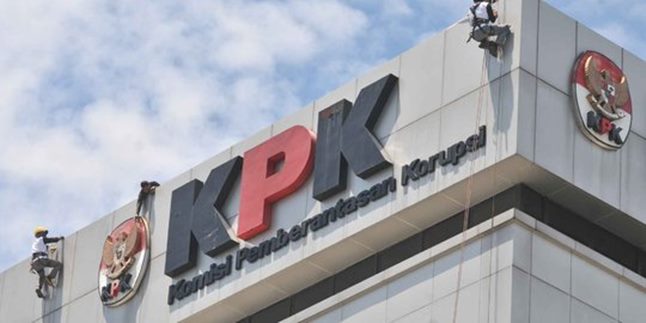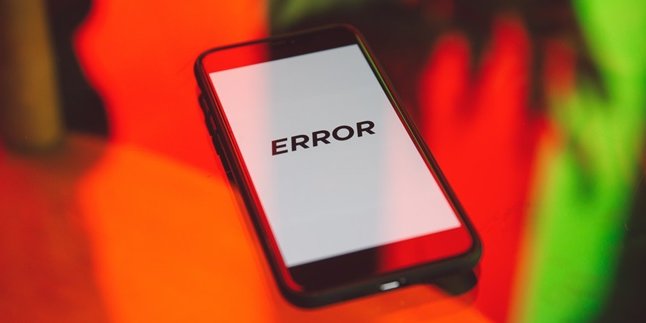Kapanlagi.com - KPK is one of the state institutions established to eradicate corruption. Yes, of course, we know the function of KPK itself. The meaning of KPK is the abbreviation of the Corruption Eradication Commission of the Republic of Indonesia. In addition to knowing the meaning of KPK, of course KLovers need to know the duties, functions of KPK as well as the vision and mission of KPK.
This commission was established based on the Republic of Indonesia Law Number 30 of 2002 concerning the Corruption Eradication Commission. Currently, there have been many cases handled by the KPK and resolved. KPK indeed has a quite heavy and responsible task.
Now, for KLovers who want to know more about KPK. Here is the meaning of KPK along with its functions and duties, as well as its vision and mission. Let's check it out KLovers.
1. Definition of KPK

Illustration (credit: Pixabay)
As you know, the meaning of KPK is the abbreviation of the Corruption Eradication Commission of the Republic of Indonesia. KPK is a state institution formed with the aim of increasing the effectiveness and efficiency of efforts to eradicate corruption. KPK is independent and free from the influence of any power in carrying out its duties and authorities.
In Wikipedia, it is explained that KPK is led by the KPK Leadership consisting of five individuals, one chairman who also serves as a member and four vice-chairmen who also serve as members. The KPK Leadership holds office for four years and can be re-elected only once. In decision-making, the KPK Leadership is collective and collegial.
In carrying out its duties, KPK adheres to five principles, namely the rule of law, transparency, accountability, public interest, and proportionality. KPK is accountable to the public and regularly and openly reports to the President of Indonesia, the People's Representative Council, and the Supreme Audit Agency.
2. Tasks and Functions of the Corruption Eradication Commission (KPK)

Illustration (credit: Pixabay)
In addition to understanding the meaning of the Corruption Eradication Commission (KPK), you also need to know the functions and tasks of the KPK. Yes, not only eradicating corruption, the KPK also has several tasks and functions that KLovers should know. Well, as quoted from Wikipedia, here are the tasks and functions of the KPK or the Corruption Eradication Commission of the Republic of Indonesia:
Tasks:
1. Coordinate with authorized agencies in the eradication of corruption.
2. Supervise authorized agencies in the eradication of corruption.
3. Conduct investigation, prosecution, and trial of corruption crimes.
4. Take preventive measures against corruption crimes.
5. Monitor the implementation of state governance.
Functions:
1. Coordinate the investigation, prosecution, and trial of corruption crimes.
2. Establish a reporting system in the activities of eradicating corruption crimes.
3. Request information about the activities of eradicating corruption crimes from relevant agencies.
4. Conduct hearings or meetings with authorized agencies in the eradication of corruption crimes.
5. Request reports from relevant agencies regarding the prevention of corruption crimes.
3. Vision and Mission of the Corruption Eradication Commission (KPK)

Illustration (credit: Pixabay)
And finally, there is the vision and mission of the KPK. Yes, the meaning of KPK is to eradicate corruption. Of course, this institution has a vision and mission to achieve its main goal. So, KLovers also need to know the vision and mission of the KPK. Here is the content of the vision and mission of the KPK:
1. KPK Vision
Together with the community, reduce the level of corruption to realize an advanced Indonesia.
2. KPK Mission
- Improve prevention efforts through the improvement of the anti-corruption management system of state institutions and government.
- Enhance prevention efforts through comprehensive anti-corruption education.
- Effective, accountable, professional, and lawful eradication of corruption.
- Enhance the accountability, professionalism, and integrity of the Corruption Eradication Commission in carrying out its duties and authority.
4. Organizational Structure

Illustration (credit: Pixabay)
And finally, about the organizational structure of the KPK. Yes, in every institution there is an organizational structure, and this also happens in the KPK. The organizational structure is responsible for achieving the goals of the KPK, which consists of the KPK Leadership, which is a state official consisting of 5 members, namely the Chairman who also serves as a Member, as well as the Vice Chairman consisting of 4 people, each of whom also serves as a Member. And here is the organizational structure of the KPK as quoted from Wikipedia:
1. Leadership
The Chairman of the KPK is one of the five leaders in the KPK. The Chairman of the Corruption Eradication Commission also serves as a member of the KPK.
2. Vice Chairman of the KPK is a leader of the KPK who also serves as a member of the KPK, consisting of:
- Vice Chairman for Prevention.
- Vice Chairman for Enforcement.
- Vice Chairman for Information and Data.
- Vice Chairman for Internal Oversight and Public Complaints.
3. Advisory Team
The Advisory Team functions to provide advice and considerations according to their expertise to the Corruption Eradication Commission in carrying out its tasks and authorities. The Advisory Team consists of 4 members.
That is the meaning of the KPK that KLovers can know and understand. Not only the meaning of the KPK, but KLovers can also know the tasks and functions, vision and mission, and organizational structure.
(kpl/gen/dhm)
Disclaimer: This translation from Bahasa Indonesia to English has been generated by Artificial Intelligence.
















